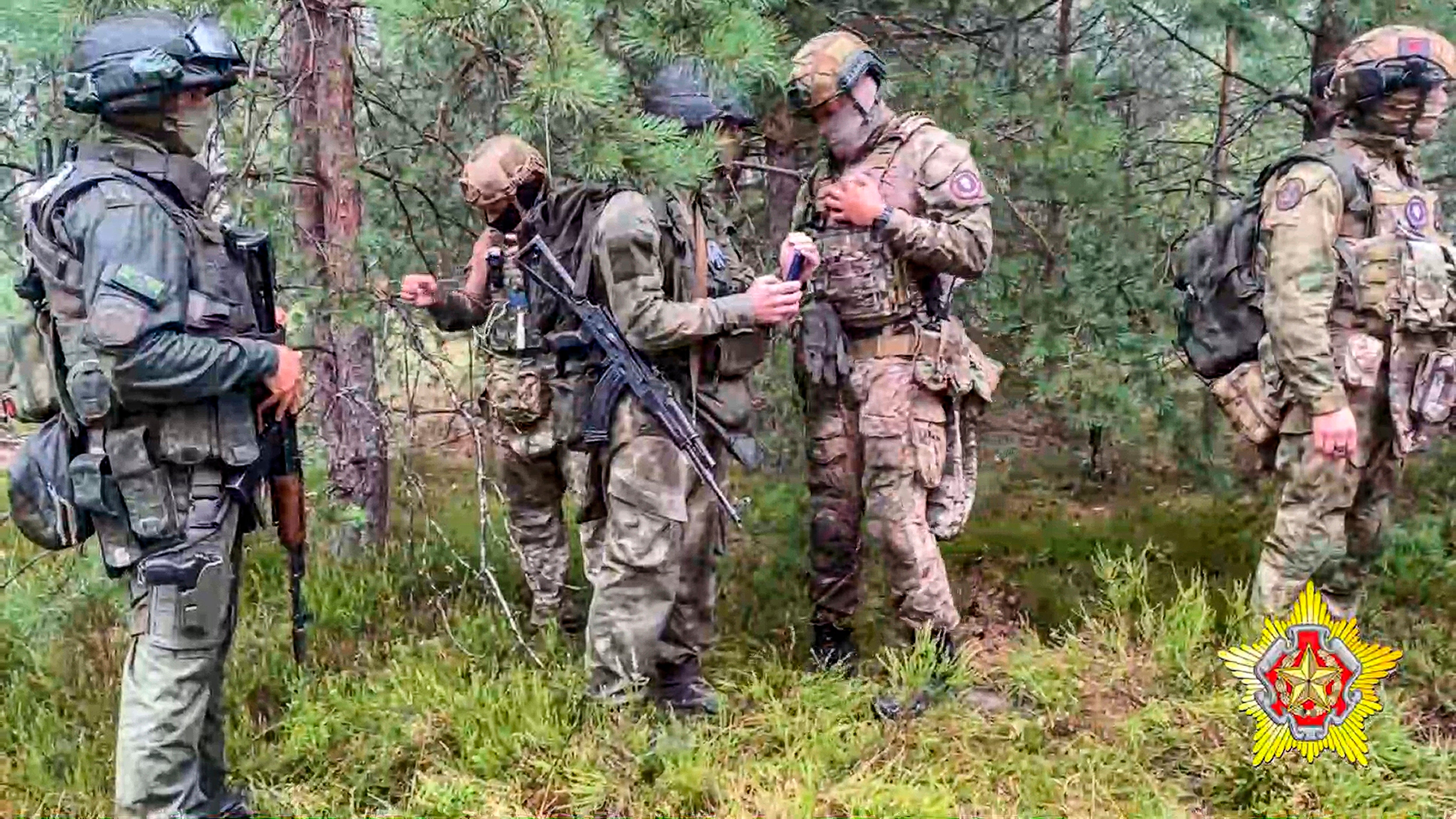Nervous NATO nations are beefing up security due to Wagner fighters across their borders in Belarus
NATO allies located along the alliance’s eastern front are growing increasingly worried about the presence of Russia-linked Wagner group mercenaries in Belarus

NATO allies located along the alliance's eastern front are growing increasingly worried about the presence of Russia-linked Wagner group mercenaries in Belarus, where some have been deployed since a short-lived mutiny in Russia in June.
Poland, Lithuania and Latvia — members of NATO and the European Union which border Belarus — had already been on alert since large numbers of migrants and refugees began arriving at their borders from Belarus two years ago. They have accused Belarus leader Alexander Lukashenko, an ally of Russia, of opening the migration route in an act of “hybrid warfare” aimed at creating instability in the West.
Now concerns have grown further since the Wagner troops began arriving in Belarus after their short-lived mutiny in Russia.
Poland’s prime minister, Mateusz Morawiecki, said on the weekend that some 100 Wagner fighters in Belarus had approached the border with Poland, specifically a strategically sensitive area known as the Suwalki Gap.
“Now the situation becomes even more dangerous,” Morawiecki told reporters. “This is certainly a step towards a further hybrid attack on Polish territory.”
An incident Tuesday added further to the concerns, with two Belarusian helicopters entering Polish air space at low altitude while carrying out exercises.
Poland’s Ministry of Defense reported that incident to NATO, which said Wednesday that it is monitoring the situation.
“NATO is closely tracking the situation along its eastern borders, including yesterday’s incident where two Belarussian military helicopters briefly crossed into Polish airspace at low altitude,” a NATO official said on customary condition of anonymity. “We are in close contact with the Polish authorities on this matter, and we will continue to do what is necessary to ensure all Alliance territory remains secure.”
Poland, Lithuania and Latvia say they have been deploying more troops and equipment to their borders.
Guntis Pujats, head of Latvia’s State Border Guard, told Latvian media Wednesday that security risks in the immediate vicinity of the Belarus border have been high since Minsk started using migrants as a tool of “hybrid warfare” but have grown with the arrival of the Wagner group. He said border guards have started training a special task force in response.
Lithuania's President Gitanas Nauseda said this week that it would be tempting for the Wagner group to use its presence near the Lithuanian border “for various provocations.”
“So I think the threat is serious,” Nauseda said during a visit Monday to a site on the border with Belarus where seven Lithuanian officers were murdered by Soviet paratroopers 32 years ago.
Others have suggested that one shouldn't overestimate the capabilities of the armed group.
Laurynas Kasciunas, chairman of the Seimas National Security and Defense Committee, told reporters that Wagner mercenaries in Belarus with their current combat power do not pose a conventional military threat. Whether they pose a great threat in the future, he said, “will depend on further scenarios, how they are armed and their orders.”
In Poland, some critics of the government believe that it is overstating the threat in order to present itself as tough on security ahead of parliamentary elections this fall. Opposition leader Donald Tusk accused the ruling party of using Wagner to stoke fear ahead of the elections, something the party has denied.
Some Poles also faulted the authorities for refusing to initially acknowledge that the Belarusian helicopters had entered Poland's airspace on Tuesday. At first, the military insisted that the Belarusian aircraft had not entered Poland. But after local residents posted photos on social media of aircraft with Belarusian insignia several kilometers from the border inside Poland, the Defense Ministry put out a statement saying it was true.
The U.S. ambassador to the United Nations, Linda Thomas-Greenfield, said earlier this week the United States views the Wagner group — whose forces have fought in Ukraine and also operated in Africa — as a threat.
“We have seen their malign efforts on the continent of Africa. So we certainly worry that this group, at the behest of the Russian government — because they do not work independently of the Russian government — is a threat to all of us,” Thomas-Greenfield told reporters on Monday. “And we have to ensure that the message is clear that any attacks by the Wagner Group will be seen as an attack by the Russian government."
___
Lorne Cook in Brussels, Jari Tanner in Helsinki, Finland, and Liudas Dapkus in Vilnius, Lithuania, contributed.
Subscribe to Independent Premium to bookmark this article
Want to bookmark your favourite articles and stories to read or reference later? Start your Independent Premium subscription today.
